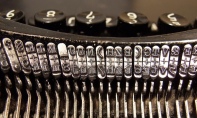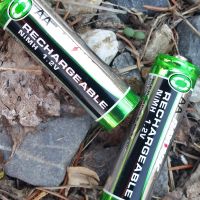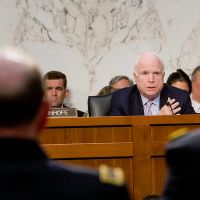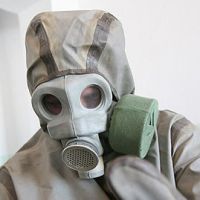- About Us
- Columns
- Letters
- Cartoons
- The Udder Limits
- Archives
- Ezy Reading Archive
- 2024 Cud Archives
- 2023 Cud Archives
- 2022 Cud Archives
- 2021 Cud Archives
- 2020 Cud Archives
- 2015-2019
- 2010-2014
- 2004-2009
 |
Cud Flashes In The Pan |
This month’s theme:
Earth Day
April 22, 2015 is Earth Day. Despite the ongoing, stalwart attempts to fix the damage we’ve done to our environment, it just keeps getting worse. And we’re all guilty of it, and we’re all hypocrites. You can’t stomp your feet about climate change and drive a car. Even you electric-car types like to smugly declare that you’re serious about the environment, don’t let me catch you buying and products packed with Styrofoam or tossing used batteries into landfills. In a nation like the U.S. where the right-wing nut jobs refuse to admit to climate change and insist it’s a hoax, we’re in bad shape. I’m not even remotely exaggerating. U.S. Senator Jim Inhofe, a Republican from Oklahoma, actually threw a snowball in the Senate chamber in defiance of the so-called llo hoax, because he believes that snow means the planet isn’t warming. Yes, we really do elect people that utterly stupid, that committed to disbelieving scientific evidence at all costs, and that unwilling to establish basic critical-thinking skills. It’s our only planet, folks. Let’s make some changes before we end up like the characters in these stories.
“World Stewardship”
Dystopian science fiction
By David M. Fitzpatrick
The sky was black with smog. The sun was trying to force its way through the dirty haze, but it had been years since anyone had seen a break in the black. The sun was a gray-white ball, like a light shining from deep under a muddy pond. AS he stared with longing at it, the low volume of the music played in the nomad’s ears.
He stood on the dirt, surrounded by barren wasteland. The grass had long ago stopped growing. Here and there across the landscape, a dead tree stood, its bare branches like fingers clawing for the sky, desperately hoping for nourishment that never came. The nomad found this terribly tragic, because he could still barely remember trees from when he was very young, when there was still occasional greenery to be found—before the sky grew black forever.
The music played on, very low. He turned the volume up all the way, but got nothing more.
He sighed inside the mask that protected his lungs. He turned and looked east, then west. There was something in the distance, so he lifted his goggles and squinted to see. Marauders? He wasn’t in the mood to deal with people who would take his things by force. He didn’t have much, but he knew marauders would kill for his canteens of water, the few cans of chili he’d found in that old house, the big bag of dried fruit scavenged from some abandoned office’s desk drawer.
No, not marauders. The nomad could see that it was the burned-out hulk of a truck of some sort. It was probably the victim of marauders who stripped it clean, stole the gasoline, and torched it. The unfortunate owner was probably a pile of scorched bones in the truck’s cab.
His eyes began to burn, so he lowered his goggles, blinking against the stinging sensation. His eyes watered even as the volume of the music suddenly dipped further. He’d be out of tunes soon.
He sighed again through his mask and dug into his waist pack for two new batteries. They were like gold to him. He kept several on his person, just in case. He’d just fished two of them out when the audio in his ears finally died in mid-song. He followed the wire from his ear buds down into his waistpack and pulled out his music player. The small screen was completely blank, but it only took him a few moments to pop open the back and switch out the dead batteries for new ones. A few thumbed buttons brought the music back to life—roaring and wailing in his ears. He winced and turned the volume down. That was much better. If he didn’t have his music, he didn’t know how he’d survive in the world.
He held up his hand to survey the dead batteries. They had expiration dates from a few years before, and they proudly announced that they were RECHARGEABLE. The nomad laughed at this—at the irony of having batteries he could re-use dozens or even hundreds of times if only he had a battery charger and somewhere to plug in that charger. But humanity had collapsed its own civilization, and there hadn’t been an electrical grid for ten years. The fact that he’d found usable batteries at all was amazing.
At least he had some music. It was the only thing that kept the nomad going in the poisoned, ruined, destroyed remnants of what had been the world.
He turned and headed back to his car, a tiny little two-door thing with small wheels. He was low on gasoline, and he had to find some if he were to keep moving. He opened the door, got in, slammed it shut, gunned the engine to life. He’d have to baby it for now, not go too fast or too slow—find the optimum speed to use what fuel he had left as efficiently as the little engine could. He shifted into gear and shot off across the barren landscape, in search of fuel.
But there was no need to keep those dead batteries, so he tossed them out the window.
“Old World, New World”
Dystopian science fiction
By David M. Fitzpatrick
The spaceship had landed in a field of flowers. It was a stark contrast: The sleek gray hulk of the ship sat amidst a field of brilliant, aqua-colored grasses, that field speckled with flowers of every color. The flowers were mostly horn-shaped, almost like lilies, and they blazed in reds and oranges, in yellows and greens, in blues and purples. At the north end of the field, a forest of blue trees with a rainbow of flowers and fruits stood. Above, the perfectly clear sky was as blue as Earth’s had once been, its sun almost identical. Two daytime moons hung in the sky. To the south, a nearby ocean sparkled.
The ship’s airlock opened and its crew of two emerged. The captain, a big man with a big chin, climbed down and planted his feet on the ground, and he sucked in a lungful of the crisp air as his junior officer joined him.
“Feel that, Lieutenant Ellerby?” he asked. “Earth hasn’t had air that clean for centuries.
Lt. Jade Ellerby breathed deeply, and it was about the best feeling she’d ever had. She’d never breathed in air like this before. Even the processed indoor air wasn’t the same. This... this was clean air full of life. “It’s beautiful, sir.”
“More than beautiful—it’s everything we could hope for.” He waded through the tall grasses, stopping to touch several flowers waving in the breeze. “Our scientists knew this would be the place, and the first survey teams here confirmed it. Can you imagine it? Conditions just like Earth, but with milder weather. Earth crops will grow here. And the animal life is so primitive that none of it poses a threat to us. It’s as if this world were made for us.”
“I wonder if we deserve it,” Ellerby said, and immediately wished she hadn’t.
The captain turned to her, raising his eyebrow. “Well, point taken, Ellerby. We spent twenty-five generations destroying our world, so why should we get this... this paradise? This Eden? This Utopia?” He chuckled. “We’ve learned from our mistakes, though. We destroyed our planet, but now we’ll make this one even better.”
“Will this be our first settlement?” Ellerby asked.
“Yes. There are two freshwater rivers, one to the east and one to the west, which empty into the ocean,” he said, nodding toward the blue-green expanse shimmering in the sunlight. “We’ll call the orbiter in a few minutes, tell them to begin sending people down. But first: I’m pretty hungry.”
He reached into his pocket, took out a meal, and peeled the paper off it. The bar was big, and it contained enough nutrients to keep a human going for a solid day if needed. He bit into it, groaning a bit in pleasure.
“That’s so good,” he said. “And it’s our first task, Ellerby: Establish a plant to produce them. These meal bars will keep our fledgling colony well-fed and healthy for the first year while we build our settlement and work crops.”
He crumpled up the wrapper as he munched, and he pointed east. “The plant will be about there. And beyond that, we’ll establish lots of greenhouses. The cattle ships will arrive within a month, and we’ll have the place full of cows in no time. In a year, when we’ve been successful, they’ll begin sending nonstop colony ships from Earth. In twenty years, two billion people will be on this world, with homes and fields and factories everywhere.”
He crumpled the wrapper some more as he tapped a button on his wrist and said, “Orbit, this is the captain. Begin sending down landers. We have a world to build.”
“Aye, sir,” came the reply.
He turned to Ellerby, a broad smile on his face, as he balled up the crumpled wrapper tightly in his fist. “We’re witnesses to a great historical event, Lieutenant. You’ll tell this story to your great-grandchildren. You’ll tell them how Earth was on the brink of environmental collapse, and how brilliant scientists located this world, and how brave explorers scouted it. You’ll tell them how you were here with the first settlers, and how you saw this world become the new home for an entire civilization.”
“That will indeed be special, sir,” Ellerby said, but she was a bit preoccupied, thinking about factories and billions of humans on the pristine world. She felt a bit uneasy, and she wasn’t quite sure why.
“Back to the ship to unload our supplies,” he said, and he headed back to the airlock. As he went, he tossed the crumpled paper over his shoulder and into the grass.
It landed right in front of Ellerby, and she looked down at it. It was a harmless ball of paper, but somehow it seemed wrong to be there amidst the blue grasses and the colorful flowers. But it was just a piece of paper.
Factories and billions...
She bent over and picked up the paper, stuffing it into her pocket as she hurried to the ship.
“World of Fantasy”
Dystopian science fiction
By David M. Fitzpatrick
“So let me get this straight, Doctor Jenkins,” said the chair of the Senate subcommittee. He said “Doctor” with sarcastic emphasis, as if Jenkins had found his doctorate in a box of Cracker Jacks. “You have testified before this subcommittee that global climate change is real, is that correct?”
“That is correct,” said Jenkins.
The reporters and other people crammed into the room behind the table where Jenkins sat launched into a collective hubbub. The senator let it go on a for a few moments before announcing, “Quiet, please.” He removed his glasses, shaking his head as if in disdain. “You say all of this despite the law?”
“I say it because it’s true,” Jenkins replied.
More hubbub from behind.
“But forty years ago, the government passed the Act to End the Hoax of Climate Change,” the senator said, scowling down from his seat behind the table. He and the other senators were on a raised platform, looking down upon Jenkins and everyone else. It was so they could be visible to everyone, of course, not because of some sense of royalty or power.
“That act was merely a political move,” Jenkins said, and the crowd behind erupted in frantic murmurs. He raised his voice and continued, almost shouting into the mike. “A government cannot legislate against the facts, senator. Simply because the Congress passed that into law doesn’t mean the facts can be changed.”
“Oh, but it can,” the senator said. “The collective terror that the climate-change hoax perpetrated upon the American people was irresponsible, and that act was passed to put an end to the fear-mongering! But, Doctor, that isn’t why we’re here. Whether you believe the act is just or not doesn’t matter. The reality is that it’s the law, and in opposition to that law you have testified that climate change is real. Do you deny preaching this to Americans?”
“I do not call educating people ‘preaching,’ senator.”
“But it is. It’s preaching of the highest order—preaching your religion, this religion of science, where whatever the scientists choose to believe they force upon the rest of us!” He sat back in his chair, smug as he replaced his glasses on his nose. “That is exactly why the act was passed into law: to keep people like you from frightening the American public, to keep you from damaging the economy, to keep you from contributing misinformation to the masses.”
“You’re afraid of the truth, senator,” Jenkins said. “All the political parties are. The truth is that climate change is indeed real. The truth is that some of you politicians make too much money from fossil fuels to admit to climate change. The truth is that too many of you feel that science somehow harms your religion.”
“I remind you, Doctor, that the act’s passage was unanimous,” the senator said. “All four political parties—the Old Republicans, the New Republicans, the Tea Party Republicans, and even the Evangelical Republicans—agreed with it. And every single member of Congress voted in favor of it.”
“Of course they did! The parties had a majority, and anyone in the minority voting against it would have subsequently been punished under that law!”
The hubbub, which had never stopped, positively exploded now. People talked furiously in hushed whispers. Nobody cried out in support of Jenkins. If there were any who did support him, they were too afraid to speak up. But now the noise was too much for the senator, and he bellowed into his mike, “We will have silence and order!”
They quieted immediately, obediently.
“Mr. Jenkins,” the senator continued, much calmer now and apparently no longer willing to use the doctor’s formal title, “you have admitted to this subcommittee that you have preached that climate change is real. You have admitted that you know that this is illegal. Are we to understand that you are aware of the punishment for this?”
“I am.”
The senator seemed perplexed. “I cannot imagine why you would admit such things.”
“Because the facts aren’t negotiable,” Jenkins snapped, and he came to his feet, pounding his fists on the table. “Our capitol was once in Washington, D.C., but that’s all underwater now. Our citizens go outside with filter masks so they won’t be sickened and killed. Our weather is out of control, with sweltering summers and vicious winters, with never-ending tornadoes and nonstop hurricanes. Yet this body, this government, this nation, this entire planet refuses to listen to the evidence that supports global climate change! Rather than do what scientists said for generations to undo this damage, instead we send water to the Moon on rocket ships in hopes of lowering the seas. And with every rocket ship that takes it there, more pollutants enter our atmosphere. We’re destroying our own world, senator, and no act of legislation can change that, no matter what you choose to believe and no matter what you do to me!”
The hall fell into a dead silence. The senator waited, glowering, as Jenkins composed himself and sat back down. Then he said, “Mr. Jenkins... the act is very clear. It was passed unanimously by this Congress—“
“Out of fear!”
“—it was upheld by the Supreme Court countless times—“
“A court filled with conservative judges chosen to uphold it!”
“—and no appeal has come close to success, with unanimous decisions against the appellants.”
Jenkins leaned back, looking weary. “I get it, senator. I have no other options. But this hearing will be part of the public record, and if just one American sees it, hears it, reads it—then my punishment will not have been for nothing.”
“Very well,” the senator said. “You’re in violation of the law, and are hereby convicted and sentenced. Sergeant at Arms, take Mr. Jenkins into custody. See to it that he has proper legal representation, because he has rights. Mr. Jenkins, if you appeal through the courts, it will take, at most, a week before the Supreme Court upholds your sentence. As such, I am setting your execution date for two weeks from today. You can choose your method of execution.”
“Just set me loose outside without a mask,” Jenkins said. “The pollutants in the air will kill me within days.”
“I’m afraid that’s not fast enough, and it’s far too public,” the senator said with a sneer. “We can’t have people like you preaching against the law even for a couple of days. It would be far too dangerous to our society.”
David M. Fitzpatrick is a fiction writer in Maine, USA. His many short stories have appeared in print magazines and anthologies around the world. He writes for a newspaper, writes fiction, edits anthologies, and teaches creative writing. Visit him at www.fitz42.net/writer to learn more.
